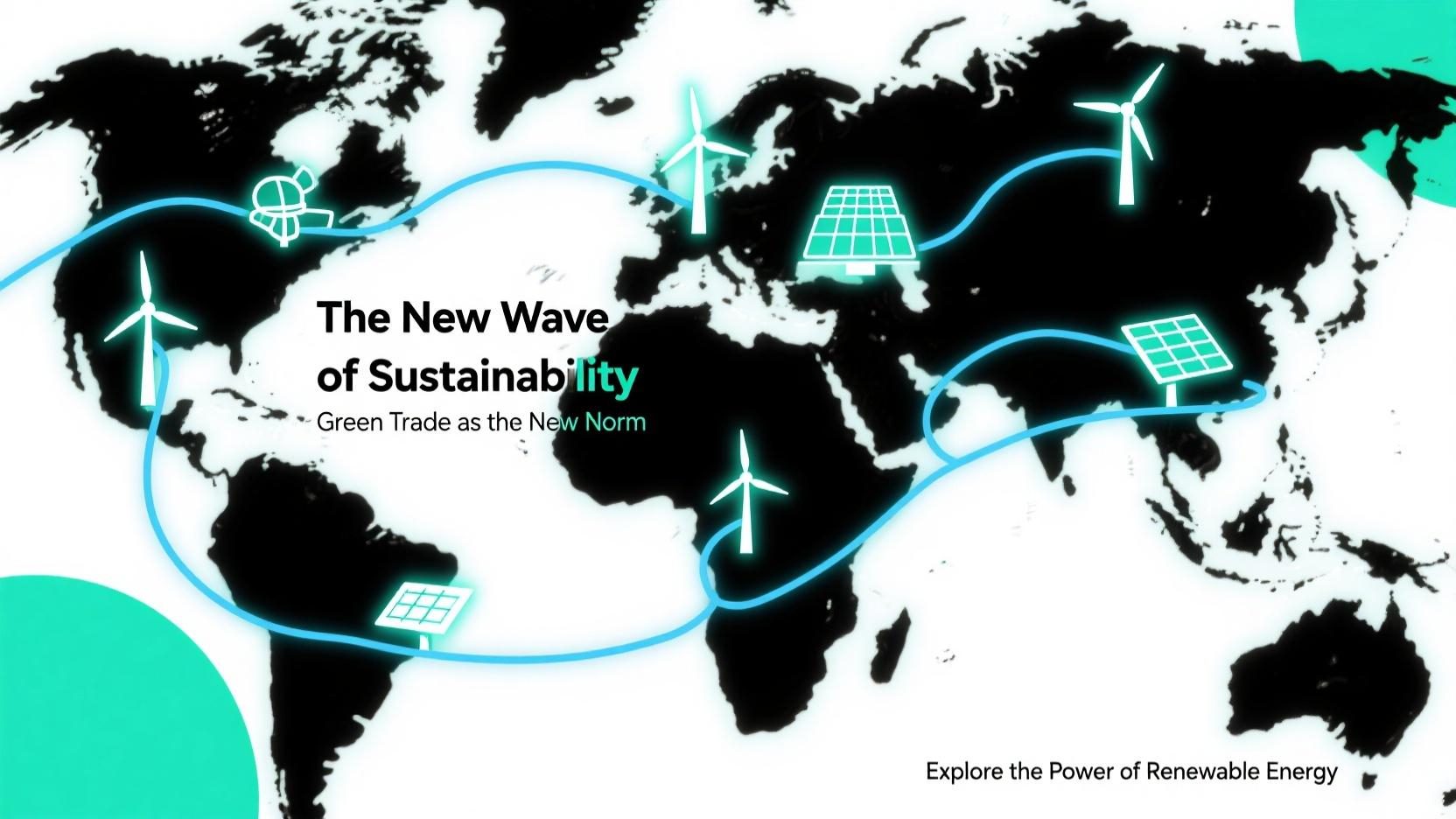In an era shaped by climate urgency and environmental constraints, global trade is undergoing its green revolution. The traditional measure of economic success — cost efficiency and speed — is being supplemented, and in some cases replaced, by the metric of sustainability. Trade policies, supply chains, and corporate priorities now hinge not only on how goods move across borders, but on the environmental footprints they leave behind.
The New Sustainability Imperative
With global temperatures rising and climate-induced disruptions intensifying, nations and businesses can no longer treat sustainability as a mere “add-on.” Instead, it has become a core metric of global trade. According to the IMF 2025 Sustainability Report, nations aligning their supply chains with climate-conscious policies have seen an average of 8–12% higher long‑term trade resilience compared with those ignoring sustainability.
Key shifts:
✅ Carbon-Tariff Frameworks: The EU’s Carbon Border Adjustment Mechanism (CBAM) taxes goods entering the EU based on their carbon footprint. Similar policies are being adopted in Japan, Canada, and Australia.
✅ Green Supply Chain Ratings: Firms like Walmart and Unilever now require suppliers to adopt rigorous ESG metrics, making sustainability a qualification for global commerce.
✅ Renewable Energy Trade: Export of green technologies — solar, wind, hydrogen — has surged. The IEA predicts global revenues from hydrogen-related equipment will triple by 2030.
The Sustainability Premium
The trend goes beyond policy — it reshapes market dynamics. Sustainable goods now command a premium:
-
Studies by NielsenIQ reveal that products labeled as “eco-friendly” grew 7.3% faster than standard offerings from 2020–2024.
-
BlackRock and Vanguard have reallocated billions from carbon-heavy industries to ESG-focused firms, reshaping global equity and commodity markets.
The Challenges of Going Green
While promising, the shift toward sustainability is contested and complex. Challenges include:
-
Fragmentation of Standards: A lack of global consensus on ESG metrics creates confusion and increases compliance costs.
-
Digital Greenwashing: The rise of automated ESG scoring has led to incidents where firms manipulate data to appear “greener” than they truly are.
-
Developing Nations at Risk: Strict environmental policies can disadvantage smaller suppliers from nations unable to quickly adopt new technologies.
The Road to True Sustainability
A truly sustainable global trade system must balance incentives with inclusivity. Leading nations and global institutions must:
🌱 Establish global ESG data standards for trust and transparency.
⚡ Invest in green infrastructure within developing nations.
🤝 Foster collaboration between private firms and international organizations like the WTO and UN.
In this shift from a cost-focused to a values-focused global economy, sustainability is no longer an option — it’s the new global currency of trust. Those who adapt will dominate the global marketplace of the future, reshaping trade for the generations to come.









